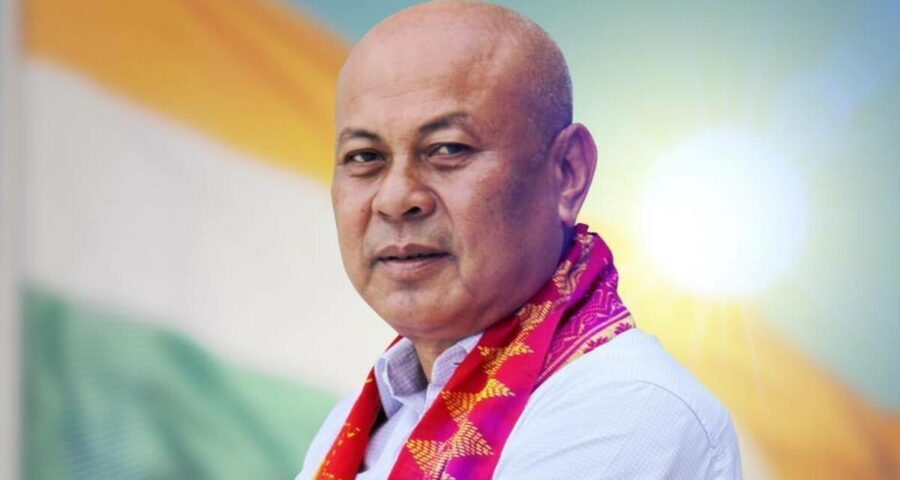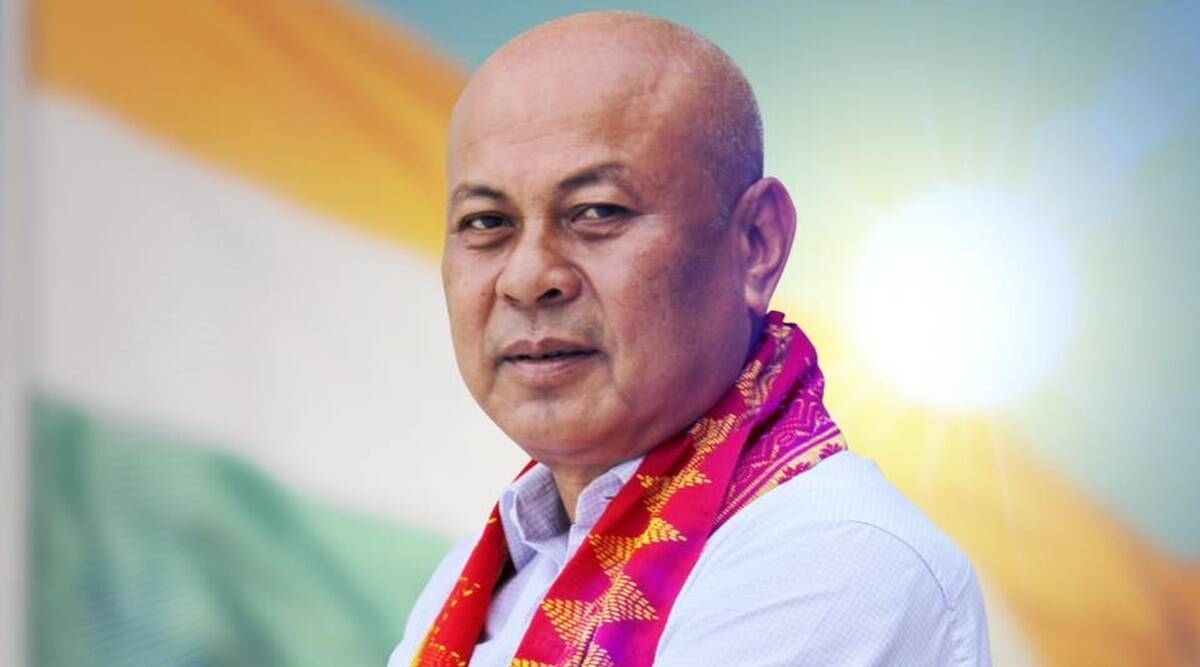Why the switching of sides by the Bodoland People’s Front leader from the BJP to Congress is one of the biggest political developments of Assam polls
The popularity of Hagrama Mohilary, once the unrivalled face of Bodo politics and a kingmaker since he joined mainstream politics in 2005, may be seen as on the decline. Yet, it is undeniable that one of the biggest political developments ahead of the Assam elections was the exit of Mohilary’s Bodoland People’s Front (BPF) from the BJP-led alliance to join the Congress-led Mahajot.
Popularly referred to as ‘Chief’, the 52-year-old was once one of the most feared militants in Assam as the face of the Bodo Liberation Tigers, fighting for a separate state for the Bodos.
A plains-dwelling tribe, the Bodos have long fought for ‘Bodoland’, first as a “sovereign homeland” and then as a state within India. The armed movement began in the mid-1980s.
But in 2003, Mohilary and his cadres gave up arms and signed a peace accord with the Centre, resulting in a Bodoland Territorial Council (BTC). The BTC was promised as a self-governing body under the Sixth Schedule of the Constitution, which allows greater autonomy to certain tribal areas of the Northeast.
Under its jurisdiction are four Bodo-inhabited districts of western Assam (Udalguri, Baksa, Chirang and Kokrajhar), covering about 12 Assembly seats (six of them reserved). The BPF won all the 12 seats in the 2016 Assembly polls; in 2011, it conceded just one, to the AGP.
Since 2005 till last year, Mohilary was the BTC’s Chief Executive Member, winning uncontested.
Ahead of the 2016 Assembly elections, as the BJP appeared to be giving the Congress a real challenge in the state, the BPF ditched the Congress and joined the BJP alliance. The two also fought the 2019 Lok Sabha polls together.
The friction started with a new Bodo Accord, signed in February 2020 — with Union Home Minister Amit Shah describing it as “the final and comprehensive solution” to the Bodo problem. The Accord primarily marked a truce with four factions of the National Democratic Front of Bodoland (NDFB), and the thrust areas included some additional powers for the BTC, alteration of areas under it, and a change in name of these areas from the Bodo Territorial Autonomous District (BTAD) to the Bodo Territorial Region (BTR). The statehood demand seemed to be have been put on hold.
Mohilary went on record to say that the accord had nothing, apart from this name change.
Shortly after, Pramod Boro, the president of the All Bodo Students’ Union (ABSU), one of the key signatories to the new accord, quit the organisation.
In the run-up to the BTC elections in December 2020, the BJP took an aggressive stand against the BPF, taking on Mohilary directly. Then, it dropped the BPF and annunced the United People’s Party Liberal (UPPL), an outfit including Boro, as its ally.
In the subsequent BTC polls, Mohilary lost the Chief Executive Member polls for the first time, to Boro — despite the BPF being the single-largest party (17 seats in the 40-seat council).
In February, Mohilary left the BJP for the Congress.
“The BPF is a party without ideological commitment,” says Jyotiraj Pathak, who heads the Political Science Department at Bodoland University, Kokrajhar. “And it is clear on that — it supports those in power.” However, Pathak adds, the fact that the BPF still won the BTC showed Mohilary remains popular.
While the corruption in the BTC is an open secret, the demography of the four BTR districts means he can count on that support for longer.
Esimates put the non-Bodo groups in the BTR — Bengali Muslims, Assamese, Adivasis, Koch-Rajbongshis, Rabhas, Garos, Nepalis — at nearly 70% of the population. They see Mohilary as a “secular” leader. “While the UPPL is known to be nationalist, Mohilary has wide support among non-Bodos,” says Pathak.
Former BTC deputy chief Kampa Borgoyary says the BPF will again win all the 12 Assembly seats where Bodos are dominant. “There is little to no impact of national parties here.”
Source: Read Full Article


